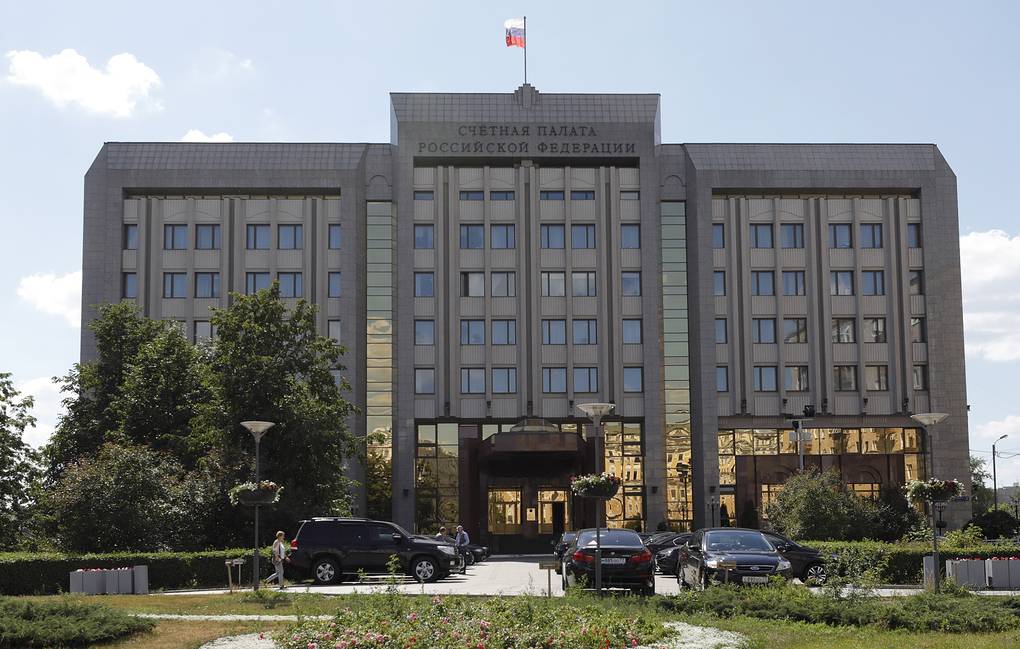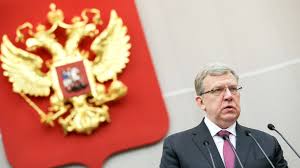On January 15, 2020, the government of Dmitry Medvedev resigned without explanation. Medvedev was then polling in the low thirties. Last week, Russia's Accounts Chamber published a devastating report on the performance of the Medvedev government for the years 2017-2018. The head of the Accounts Chamber is former finance minister Alexei Kudrin, the man whom Medvedev as president had dismissed in 2011 while calling Kudrin an "irresponsible chatterbox"[1]
Some commentators believe that Kudrin enjoyed sticking the knife into the demoted Medvedev. " Kudrin held a grudge against Medvedev for nine years so now he went for the jugular... Kudrin had the chance to get even with Dmitry Medvedev when Vladimir Putin instructed the Accounts Chamber to check the effectiveness of the state’s efforts to achieve strategic goals. The auditor analyzed the quality of public administration in terms of implementing national projects and concluded that the management was ineffective."[2]
Economist Mikhail Delyagin, Director of the Institute for Globalization Problems concurs with the Accounts Chamber's findings, but also feels that Kudrin may have had a personal axe to grind:
“We have a really extremely low quality of public administration and public administration personnel. If you look at the newly appointed governors, the bulk is divided into two categories - good PR managers and those who are unable to even engage in PR. And we do not have strategic planning by definition...But perhaps Comrade Kudrin decided to explain to everyone that it was he who demolished the Medvedev government, and therefore issued such a report...Now, some of the madmen will think that the Medvedev government was dismissed because it was Kudrin who opened the eyes of the president to who worked for him as prime minister. ”[3]
The report still raises questions: If the previous government was incompetent, why is the present government composed mainly of holdovers from that government. Many of those who did resign, including Medvedev, were appointed to senior positions in the presidential administration.
Yulia Kalinina summed up some of the most damning findings in an article titled" The Accounts Chamber Report explains the reason for the sudden resignation of the Medvedev government" in the Mk.ru outlet a translation of which follows below:[4]

The Russian Federation's Accounts Chamber (Source: Tass.com)

Alexei Kudrin (Source: Duma.gov.ru)
"None Of The Ministries' Plans Of Action Met Established Requirements.
"The government under Medvedev could not deal with tasks planning and goals achievement. This conclusion follows from the materials of the Accounts Chamber (AC) posted today on the institution's website. The report on the results of the 'Strategic Audit on the Formulation and Achievement of the Performance Indicators of the Federal Executive Bodies (FEB), Managed by the Government' for 2017-2019 describes in detail the amazing managerial indifference even for our country.
"We do not know whether this AC report had an impact on the decision to have the government resign. But, judging by the hopeless mess described there, it had to play a significant role.
"Everyone who works or has previously worked in budgetary institutions is familiar with the vast importance attached to reports and plans.
"Each year, each budgetary structure unit writes a report on the previous year's work and a plan for the next year.
Garbage In Garbage Out
"As form and not content is most important in these documents, this is done extremely formalistically. Similar documents for the past year are taken and completely rewritten, and the authorities indicate which numerical values must be increased or reduced by 5 or 10%.
"At the top, all these plans from all the lower structures are also formalistically incorporated into a single document. Usually, this document faithfully replicates the previous year's one, but with slightly different numbers. Since it is thoughtlessly compiled, it may contain a mass of discrepancies.
"New goals and objectives are not taken into account or they are not correlated with old ones.
"Intermediate indicators for a long term task to be achieved in a given year are not indicated. The methodology for their determination is not thought through. The same goal is duplicated by different departments, giving rise to confusion.
"As a result, in all these plan reports, it is impossible to verify who actually achieved something: were the assigned tasks fulfilled or not?
"No one, however, checks these reports, until the Accounts Chamber gets around to running an audit. Then it turns out that there is an utter mess in all these plans and reports and it is impossible to objectively evaluate the effectiveness of the budgetary structures' work on them..."
[The following is a table of indicators achieved according to the Accounts Chamber]
|
Year |
Number of Indicators |
Achieved |
Not achieved |
No information |
|
2017 |
785 |
451 |
135 |
196 |
|
2018 |
759 |
481 |
112 |
136 |
"This is precisely the picture that emerges from the materials published today: “In the strategic planning, problems of regulation, methodology, supervisory organization, transparency and access to information appeared.
"The analysis showed that the legal and regulatory instruments governing this sphere do not form a complete strategic planning system. They are not harmonized and updated in accordance with documents defining the national goals and strategic objectives of the country's socio-economic development.
"As a result, not one of the approved FEB activity plans (federal executive bodies, e.g. ministries and departments of the Russian Federation) for 2019–2024 meets the established requirements. Only 26% of the state program and subprogram indicators for which they are responsible are included in the federal executive plan. 55% of the national and federal projects indicators, are taken into account in the plans.”
"To put it simply:
1) National goals are indicated to the government. To achieve them, it is necessary to overcome a series of challenges...
2) The tasks are formulated in federal and national projects. Ministries and departments should solve them.
3) Ministries and departments included half of the indicators for these projects in their work plans, and “forgot” the rest.
“There are a ton of these indicators…”
"Amateurism during the planning stage yields precisely the same amateurism when tabulating the planned results.
“A selective analysis of the final reports of the federal executive bodies for 2018 showed that in most cases they have the nature of a 'a police report' on the results achieved, which does not contain an analysis of existing problems and does not reflect the real state of affairs.
"For example, the text portion of the Ministry of Finance's final report in 2018 and the tasks for 2019 does not contain an analysis of unachieved indicators, which created the risk that the Ministry of Finance of Russia would not achieve all six envisaged goals.
"This information is also unavailable in the annexes to the final report, which only contain information on unattained target indicators for the state programs.
"Essentially, a distortion of facts and information takes place, contributing to a biased evaluation of the federal executive bodies' activities.”
Teenage Behavior
"Teenagers generally like to do this. They put their successes up front, and sort of forget their failures. They tell their parents about the 'A', and keep silent about the 'F'. Why spoil the mood for yourself and them?
"If there is an opportunity to perform planning and report preparation as a side gig, then senior officials try to derive benefit from it for themselves.
"For example, some task is complicated. They understand that the required indicator will certainly not be achieved by their agency. So, they simply do not include it [the indicator] in the plan and consequently, they do not have to account for it.
"'Since currently no requirement exists to include all indicators of state programs without exception in the federal executive work plan, the opportunity exists for excluding indicators, which have a high probability on non-fulfillment,' says the Accounts Chamber. 'In this case, these indicators are not taken into account during the performance assessment of the federal ministry, which may lead to its unjustified overestimate.'
"Another trick from the teenage arsenal–pretend that he did not see the difficult task, missed it somehow. Maybe he can get away with it?
"The Accounts Chamber has done tremendous work, cross-checking and comparing the indicators in the federal executive bodies' reports and plans over the past three years. It is possible to familiarize yourself with all its 'discoveries' on the institution's website.
"In a newspaper article, we, unfortunately, cannot retell even a tenth of all the information collected during the audit, therefore we provide here only conclusions that are absolutely deadly for the already, thank God, departed government.
"- Public administration goals at the stages of planning, plan adjustment, monitoring, supervision and evaluation of intermediate and final socially significant results in the areas of FEB are not achieved.
"- The lack of an activity strategy for FEB activity precludes the possibility of enhancing the effectiveness of their activities towards achieving national goals.
"- Reports on the implementation of the FEB plans for the reporting year are of a formalistic character. They do not contain an assessment and analysis of why goals and indicators went unachieved and cannot serve as a tool for making managerial decisions.
"- The supervision by the Government of the Russian Federation over the implementation of the FEB plans on the basis of their reports does not lead to an enhanced quality of management. The absence of feedback on these reports' results reports’ following their examination does not contribute to the adoption of measures for addressing problematic issues.
"- The low level application of information technology reduces the effectiveness of the strategic management system of federal executive bodies.
"- The poor application of information technology reduces the effectiveness of the strategic management system for FEB activity."
No Results For The Ruble
"And a final verdict:
"'The system of strategic planning of the activity of FEB is currently unbalanced and inefficient, insufficiently regulated and with inadequate methodological groundwork, and a low supervision level and executive discipline.'
"'In this state, it does not contribute to the attainment of national goals and requires improvement.'
"One improvement has already happened: the former government has been dismissed and a new one was formed.
"The new prime minister is now responsible for further improvements. Hopefully, he will teach federal ministries and departments to draw up reports and plans so that their ends meet ...
"The government directs the activities of 53 federal authorities - ministries and departments. Their activities are aimed at the socio-economic development of the country. The achievement of the national goals determined by the President of the Russian Federation directly depends on their work effectiveness.
"As of January 1, 2019, the staff levels of 53 federal executive bodies was 368,173 units.
"The amount of space they occupy is 22,923.1 thousand square meters.
"The total number of service vehicles is 21,396 units.
"In 2018, these 53 FEB received 9,510.1 billion rubles from the federal budget (this amount includes expenses for the implementation of functions in the given sphere).
"The entire federal budget for 2018 was 16.5 trillion. The 53 FEB, it turns out, spent more than half of the country's total annual budget - 57.5%.
"It was our public money. 53 FEB were supposed to develop the economy and social sphere on them, bringing indicators closer to the goals set by the president. But since the strategic planning in 53 departments was performed half-assed, we do not know how effectively this was done.
"Not only we (the public), but even the authorities themselves do not know how effectively they spent 57% of the country's annual budget. And this, of course, is shocking."




.jpg)